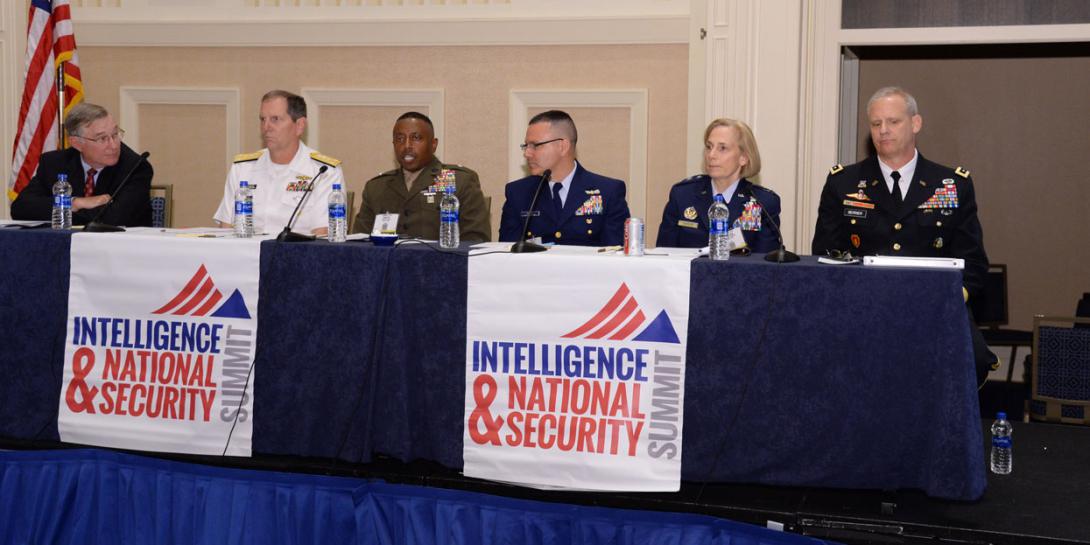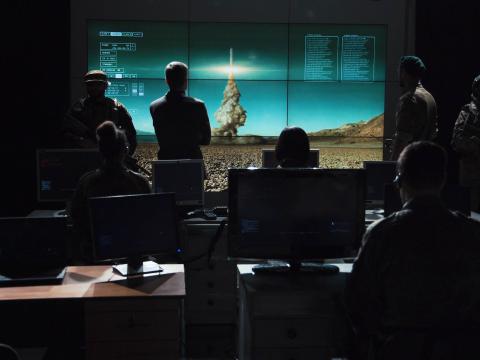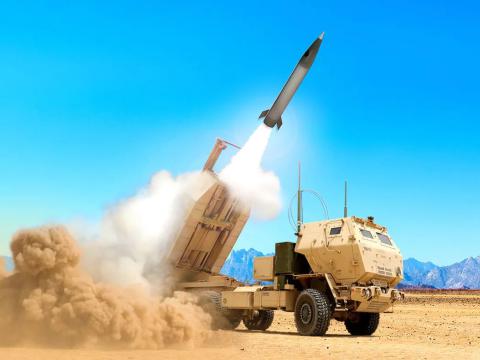Russia Looms as Major Threat, Say Service Intelligence Chiefs
A resurgent Russian military that has adopted an entirely different posture than its communist predecessor is posing a major military challenge to U.S. forces worldwide, according to U.S. service intelligence chiefs. Where China is boosting its military to realize its goal of global economic supremacy, Russia is focusing its force modernization to defeat the U.S. military in any setting, the flag officers said.
This perspective was part of a broad spectrum of military intelligence community needs enunciated by a panel on service intelligence priorities during the second day of the 2018 Intelligence and National Security Summit sponsored by AFCEA International and INSA at National Harbor, Maryland. Five service intelligence chiefs discussed threats and solutions, many of which involved industry.
While China’s military and economic rise—particularly its long-range missile improvements—was discussed, it was Russia’s military that elicited substantial concern. Its modernization was summed up by Vice Adm. Matthew Kohler, USN, deputy CNO for information warfare and director of naval intelligence. “The Russian navy has focused on quality, not quantity,” the admiral declared. “Its platforms are far more lethal than the past 20 years.”
Lt. Gen. VeraLinn "Dash" Jamieson, USAF, deputy chief of staff for intelligence, surveillance and reconnaissance (ISR), U.S. Air Force, cited Russia’s Syrian involvement as a major training aid for its forces. “Russia has used Syria as a proving ground for some of its new technology,” the general said, citing advanced missiles launched from MiG-31 jets as just one example. “Russia also has cycled 80-85 percent of its pilots to get combat experience in Syria,” she reported.
Russia has used Syria as a proving ground for some of its new technology.—Lt. Gen. Dash Jamieson, USAF, deputy chief of staff for ISR, U.S. Air Force. #intelligence2018
— Bob Ackerman (@rkackerman) September 5, 2018
Gen. Jamieson said the Air Force is planning for ISR both from and for space. She also described how the service hopes to balance its aircraft and space ISR portfolio, and she asked industry to come up with ideas to help in this endeavor.
Lt. Gen. Dash Jamieson, USAF, deputy chief of staff for ISR, says the Air Force is planning for ISR from and for space. And industry can help. #intelligence2018
— Bob Ackerman (@rkackerman) September 5, 2018
The general said that the Air Force refers to “publicly available data” instead of “open-source” information, and the service again is counting on industry to help provide algorithms to exploit it fully. These algorithms might sort legitimate information from falsehoods, for example. Advocating a public-private partnership, Gen. Jamieson told industry: “You really want to partner with our younger folks.” Adm. Kohler added that industry can help with data standards and strategy.
You in industry really want to partner with our younger folks.—Lt. Gen. Dash Jamieson, USAF, deputy chief of staff for ISR, U.S. Air Force. #intelligence2018
— Bob Ackerman (@rkackerman) September 5, 2018
Having talented people to work intelligence tasks is a challenge, the service chiefs agreed. Gen. Jamieson noted that the services must compete with industry, academia and the government for the 330,000 top technology people in the United States. “China has more Ph.D. students than we have students,” she pointed out, adding that the military should partner with industry to tap its human resource expertise.
The U.S. Army confronts a multifaceted challenge in this area, said Lt. Gen. Scott Berrier, USA, G-2, U.S. Army. “From the Army perspective, readiness is having the right people, the right equipment and the right training, at the right time,” he stated, adding “And that time is limited.”
From the Army perspective, readiness is having the right people, the right equipment and the right training, at the right time, and that time is limited.—Lt. Gen. Scott Berrier, USA, G-2, U.S. Army #intelligence2018
— Bob Ackerman (@rkackerman) September 5, 2018
The Marine Corps takes a different approach to recruiting talent, said its director of intelligence, Brig. Gen. Dimitri Henry, USMC. “We don’t recruit linguists,” the general said. “We recruit Marines and discover their talents and train them as linguists.”





Comments